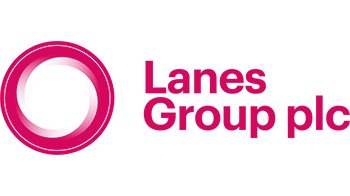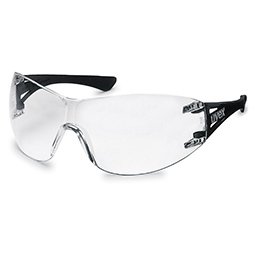Lanes Group Case Study
uvex safety spectacles last 16x longer than safety specs previously used and wearers find a novel method of storing them. Drainage specialist Lanes Group plc‘s Rail Division provides a vital overnight maintenance service to both London Underground (LU) and Tube Lines (TL). The company is contracted to maintain and correct premises and civils faults in LU and TL’s assets, which include, amongst other things, drainage systems, pipe work, roofing, glazing tiles and locks.
Scott Tracey is Health & Safety Manager of the Rail Division of Lanes Group, with overall responsibility for the health and safety of around 150 workers on the LU and TL contracts. He supervises and liaises with both Lanes’ own staff and sub-contractors, training workers in working safely, as well as writing company procedures, undertaking risk assessments and procuring and testing equipment and personal protective equipment (PPE).
Problems
Up until two years ago, Lanes had been experiencing a high level of wastage of the safety glasses they had been using, because the spectacles continually misted up and easily became scratched, as they did not have anti-mist or anti-scratch coatings. In addition, the wearers had nowhere to put the specs when they took them off.
Scott elaborates: “The men used to wear the glasses and then put them in their vans. The glasses were not practical or user-friendly. We were getting through at least two to three pairs a week for each worker.”
Solution
Scott spoke to his directors to obtain their approval for trialling new safety specs supplied by uvex. The trials lasted two months and cost the company nothing. “We tried three different types of glasses, but after feedback from the users, chose uvex winner and the uvex x-trend safety spectacles” he says. The uvex winner is a comfortable, flexible, frameless metal spectacle with large lenses that gives clear visibility in all directions, while the x-trend has a large wrap-around lens, giving unobstructed vision in all directions.
“The guys use the specs for every type of maintenance activity, from mixing up cement-based products and concrete, to repairing the tiling or plumbing systems,” says Scott.
Lanes also purchased uvex’s protective pouches for storing the glasses, which its workers adapted to wear on the back of their safety helmets by attaching them to the band around the back of the helmet using the Velcro clips, instead of wearing them on their belt loops.
Outcome
Scott observes that the men are delighted with the uvex x-trend and winner spectacles, which they are allowed to choose according to the style they prefer.
“The feedback we have been given is that because of the anti-mist coating on the lenses, the specs don’t mist up, clouding their vision. The scratch-resistant coating ensures they don’t get damaged and this is further helped by the protective pouch being to hand all the time on their helmets. It encourages the guys to wear the glasses, so has enhanced safety on all the sites.”
“Wearing safety specs used to be a big issue, but now the guys are much more happy to wear them,” he adds.
Now Lane’s maintenance workers wear the protective pouches for the uvex glasses on the backs of their helmets, they avoid getting scratched or damaged in transit on their vehicles’ dashboards or thrown into their tool bags after they have worn them, where they quickly used to become ineffectual.
In addition, the number of men wearing the glasses has increased immensely. “Although it is not mandatory for workers to wear safety glasses, we are finding that nearly all of our operatives are wearing them by choice, for all activities we undertake,” reports Scott. “The protective pouches on the helmets have also vastly improved not only safety, but also the audit/site inspection regimes by our clients that are undertaken on a regular basis,” he adds.
Working on the London Underground is dirty work and wearing the specs on helmets rather than belts keeps them cleaner. Another plus is that the user always knows where the glasses are, avoiding the issue of them slipping around the body when worn on the belt. “Not everyone on site wears a belt, but everyone wears a safety helmet,” Scott points out.
According to the Health & Safety Executive (HSE), there are over 2,500 reportable eye injuries at work each year in the UK, a figure considered to be far lower than the actual number of injuries, owing to under-reporting. The uvex glasses have meant that since introduction, the company has not had any reported eye related injuries.
Although they are initially more expensive than the glasses previously used because they are of far superior quality, the uvex glasses have enabled huge cost savings for the company, since each pair now lasts around two months, rather than having to be thrown away after a few days’ use. They are thus extremely cost-effective. “We now get an extra seven weeks’ worth of wear at no extra cost to ourselves,” says Scott.
“One of the biggest benefits to us is having the protective pouches on the guys all the time. uvex gave us the solution to the problem by providing the pouches that fit on the back of the helmet. It was the pouch we had been looking for,” confirms Scott.
Scott gave a presentation to the company’s Directors on the cost savings of using uvex’s safety glasses. “The Directors were quite astounded by the results of the trials and were very pleased. Since then we have not looked back,” he concludes.

Useful links
Back to case studies
Press releases
Safety in sports
Contact us
